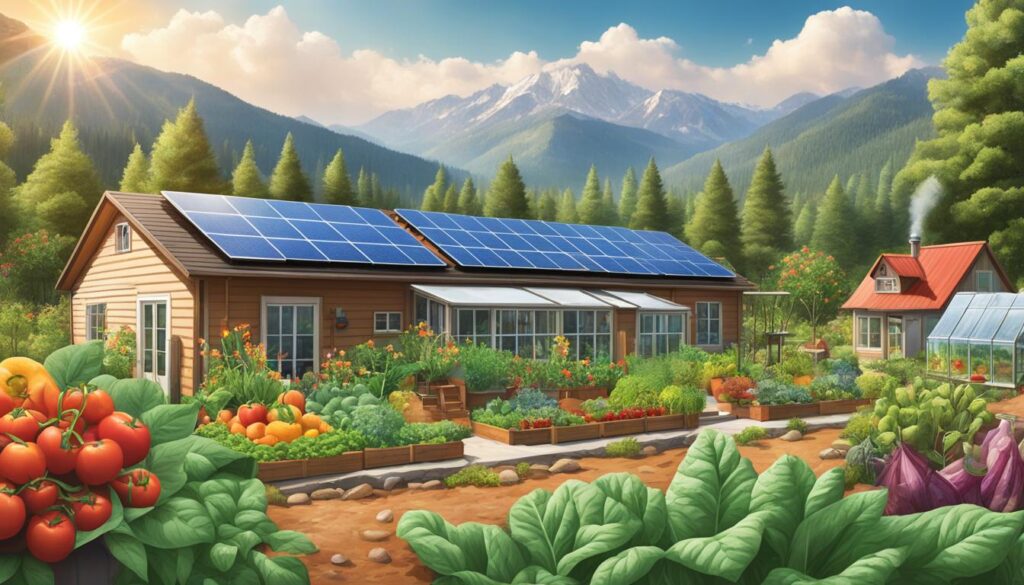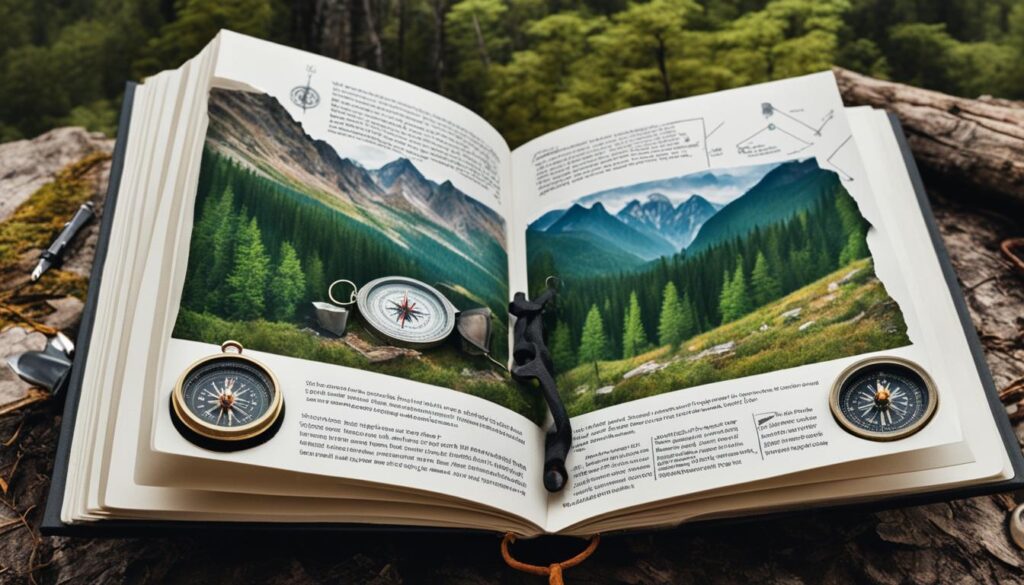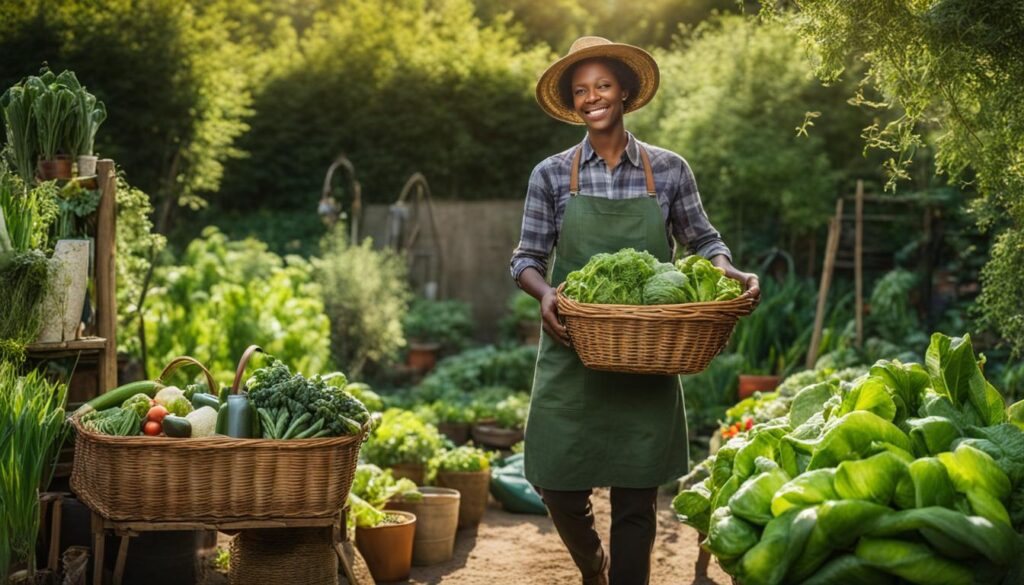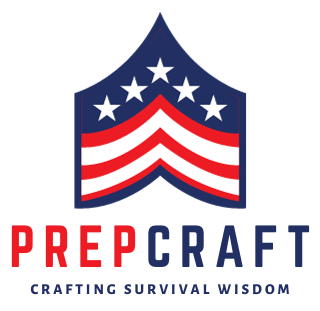
As a prepper, I understand the importance of being prepared for the unpredictable. Living the prepper lifestyle requires more than just stockpiling supplies and building a bunker. It involves continuous learning and skill development to thrive in any situation. By embracing lifelong learning, I can become self-sufficient, build essential survival skills, and gain the necessary knowledge to navigate challenging circumstances.
Prepper education is the foundation of preparedness. It goes beyond just acquiring knowledge; it’s about developing the skills needed for self-sufficiency and adapting to changing situations. From first aid and food preservation to communication and emergency preparedness, prepper education equips me with the tools and knowledge to thrive in uncertain times.
Lifelong learning plays a vital role in the prepper lifestyle. It promotes self-sufficiency and independence by continuously acquiring knowledge and honing skills. Lifelong learning empowers me to adapt to various situations, solve problems creatively, and make informed decisions in times of crisis. It enables me to take control of my life and prepare for a wide range of challenges.
Building survival skills is essential for thriving in the prepper lifestyle. By continuously honing these skills, I become more capable of handling emergencies and surviving in challenging environments. From basic first aid and fire-making to advanced navigation and shelter building, building survival skills instills confidence and prepares me to face unexpected situations with resilience and resourcefulness.
Prepper knowledge is the backbone of preparedness. Continuously acquiring and updating my knowledge allows me to stay informed about current threats, learn new techniques and strategies, and make well-informed decisions in times of crisis. Prepper knowledge empowers me to take proactive measures, effectively respond to emergencies, and thrive in the face of adversity.
The path to self-sufficiency is a journey that all preppers strive for. By acquiring the necessary skills and knowledge to provide for myself without depending on external resources, I reduce my vulnerability to external disruptions. This path includes continuously developing skills such as food cultivation, water harvesting, renewable energy generation, and resource management. By becoming self-sufficient, I increase my chances of thriving in uncertain times.
Key Takeaways:
- Continuous learning is essential for thriving in the prepper lifestyle.
- Prepper education equips individuals with knowledge and skills for self-sufficiency.
- Lifelong learning promotes adaptability and problem-solving in unpredictable situations.
- Building survival skills instills confidence and prepares preppers for emergencies.
- Prepper knowledge empowers individuals to make informed decisions during crises.
The Importance of Prepper Education
Prepper education is a critical component of the prepper lifestyle. It involves the acquisition of knowledge and the development of essential skills that contribute to self-sufficiency and preparedness. By actively engaging in continuous learning, preppers equip themselves with the necessary tools and knowledge to thrive in uncertain times and increase their chances of survival during emergencies.
Knowledge Acquisition for Preparedness
Prepper education encompasses a wide range of topics, including first aid, food preservation, self-defense, communication, and emergency preparedness. Through knowledge acquisition, preppers gain valuable insights and information necessary for navigating challenging situations. By staying informed and up-to-date, individuals can make critical decisions based on a solid foundation of knowledge.
For example, having first aid knowledge equips preppers to handle medical emergencies that may arise in an unpredictable environment. Similarly, understanding food preservation techniques enables them to store essential supplies effectively, ensuring long-term food security. The continuous acquisition of knowledge empowers individuals to fully grasp the potential risks and adapt their preparedness strategies accordingly.
Skill Development for Self-Sufficiency
In addition to knowledge acquisition, prepper education also emphasizes skill development. Building practical skills is crucial for enhancing self-sufficiency and preparedness, as these abilities directly contribute to survival in various scenarios.
Skills such as fire-making, navigation, and shelter building are fundamental for thriving in outdoor environments and emergency situations. Knowing how to effectively communicate and establish networks is essential for preppers to connect with like-minded individuals or seek help when needed. By continuously developing these skills, preppers gain confidence in their abilities and increase their chances of effectively managing challenges.
Building a Strong Prepper Community
Prepper education not only focuses on individual preparedness but also fosters the growth of a strong prepper community. By sharing knowledge and skills with others, individuals contribute to a collective pool of resources and expertise.
Continuous learning and education create opportunities for collaboration and cooperation, strengthening the bonds within the prepper community. Through active discussions, shared experiences, and joint training exercises, preppers can learn from one another and further enhance their preparedness endeavors.
By building a robust prepper community, individuals increase their chances of survival and collective resilience during challenging times.
Lifelong Learning for Self-Sufficiency

Lifelong learning is a fundamental aspect of the prepper lifestyle. Through continuous knowledge acquisition and skill development, individuals can enhance their self-sufficiency and independence. By reducing reliance on external resources, preppers become better equipped to handle unpredictable situations and challenges that may arise.
Lifelong learning empowers preppers to adapt to various scenarios by equipping them with the necessary tools and knowledge to solve problems creatively. Whether it’s learning how to forage for food in the wilderness or acquiring first aid skills, continuous learning enables preppers to make informed decisions and address emergencies effectively.
“The capacity to learn is a gift; the ability to learn is a skill; the willingness to learn is a choice.” – Brian Herbert
By actively engaging in lifelong learning, preppers gain a sense of control over their lives. It allows them to develop a wide range of practical skills and knowledge, including communication, navigation, and resource management. This increased self-sufficiency not only improves their ability to survive in challenging circumstances but also enhances their overall quality of life.
| Benefits of Lifelong Learning for Self-Sufficiency: |
|---|
| 1. Adaptability: Lifelong learning enables preppers to adapt quickly to changing situations and solve problems creatively. |
| 2. Self-reliance: Continuously acquiring skills and knowledge reduces reliance on external resources, fostering independence. |
| 3. Empowerment: Lifelong learning empowers preppers to take control of their lives and prepare for a wide range of challenges. |
| 4. Problem-solving: Skills developed through lifelong learning aid in effective problem-solving during emergencies. |
| 5. Preparedness: The knowledge gained through continuous learning enhances preparedness for various scenarios. |
Embracing lifelong learning lays the foundation for self-sufficiency in the prepper lifestyle. It equips individuals with the skills and knowledge needed to thrive independently and confidently navigate uncertain times. Continuous learning is not just a means of survival, but a pathway to personal growth and resilience. By investing in lifelong learning, preppers can truly take charge of their own destinies.
Building Survival Skills
Building survival skills is an essential aspect of the prepper lifestyle. Whether you are faced with a natural disaster, widespread power outage, or any other emergency situation, having a diverse set of survival skills is crucial for ensuring your safety and well-being. By continuously honing these skills, you can enhance your ability to handle unexpected challenges, navigate challenging environments, and increase your chances of survival.
Survival skills encompass a wide range of areas, from basic first aid and fire-making to more advanced techniques like navigation, hunting, and shelter building. Each skill serves a specific purpose and can prove invaluable in a crisis situation. For example, knowing how to administer basic first aid can mean the difference between life and death in a medical emergency, while the ability to start a fire can provide warmth, light, and the means to cook food.
Building survival skills also goes beyond practical knowledge. It instills confidence and mental preparedness, enabling you to approach unexpected situations with resilience and resourcefulness. When you have a solid foundation of survival skills, you can trust in your abilities and make more calculated decisions during times of crisis.
To help you better understand the importance of building survival skills, here is a table showcasing key skills that every prepper should focus on:
| Skill | Description |
|---|---|
| First Aid | Learn basic medical techniques to provide immediate care in emergencies. |
| Fire-Making | Master the art of starting fires using various methods and tools. |
| Navigation | Develop navigational skills to find your way without relying on technology. |
| Hunting and Trapping | Acquire the knowledge and skills to source food from the wilderness. |
| Shelter Building | Learn how to construct temporary and long-term shelters using natural or available resources. |
| Wilderness Survival | Develop skills for surviving in the wild, including foraging for edible plants and finding potable water sources. |
| Self-Defense | Master techniques to protect yourself and your loved ones in dangerous situations. |
By dedicating time and effort to building these survival skills, you are investing in your own self-sufficiency and ability to thrive in any situation. Remember that skill development is an ongoing process, and continuous practice and learning are essential for maintaining proficiency. Equip yourself with the knowledge and abilities required to face the unknown, and embrace the prepper lifestyle with confidence.
The Power of Prepper Knowledge

Prepper knowledge is the foundation of the prepper lifestyle. It encompasses a wide range of information and expertise related to emergency preparedness, self-sufficiency, and survival skills. By continuously acquiring and updating their knowledge, preppers can stay informed about current threats, learn new techniques and strategies, and make well-informed decisions in times of crisis.
With prepper knowledge, individuals can proactively take measures to protect themselves and their loved ones. Whether it’s learning first aid techniques to provide immediate medical assistance, understanding different emergency scenarios and how to respond, or acquiring self-defense skills to ensure personal safety, prepper knowledge empowers individuals to face challenges head-on.
Another critical aspect of prepper knowledge is self-sufficiency. By learning about food preservation methods, water storage techniques, and renewable energy sources, preppers can become less reliant on external resources and more capable of sustaining themselves during extended periods of disruption.
Survival skills are also an integral part of prepper knowledge. Knowing how to build shelters, start fires, forage for food, and navigate in unfamiliar terrain can mean the difference between life and death in critical situations. By continuously honing these skills, preppers gain the confidence and ability to adapt to any challenging environment.
Knowledge is power, and in the prepper lifestyle, it is no exception. With the right knowledge, preppers can effectively respond to emergencies, protect themselves and their communities, and thrive in the face of adversity.
It’s important to note that prepper knowledge is not static; it is an ongoing process of learning and growth. As new technologies, techniques, and strategies emerge, preppers must stay up-to-date to remain prepared. Regular training, attending workshops and seminars, and staying connected with like-minded individuals are all effective ways to continue expanding prepper knowledge.
Developing Prepper Knowledge: A Holistic Approach
To develop a well-rounded prepper knowledge base, it’s essential to focus on various aspects of emergency preparedness, self-sufficiency, and survival skills. Here are some key areas to consider:
- Medical skills: Learning first aid, CPR, and basic medical procedures can be life-saving in emergency situations where professional help may be limited or delayed.
- Food and water: Acquiring knowledge about food preservation, water purification, and sustainable farming techniques ensures a stable food supply during times of scarcity.
- Self-defense: Understanding self-defense techniques and situational awareness can help preppers protect themselves and their loved ones when faced with potential threats.
- Communication: Learning how to use various communication tools, such as radios or signaling devices, can facilitate effective communication during emergencies when traditional methods may be unreliable.
- Navigation: Developing navigation skills, such as map reading and orienteering, enables preppers to find their way in unfamiliar environments or when conventional navigation systems are unavailable.
By embracing a holistic approach to prepper knowledge acquisition, individuals can build a solid foundation for emergency preparedness, enhance their self-sufficiency, and develop essential survival skills.
| Prepper Knowledge Benefits | Key Takeaways |
|---|---|
| Empowers individuals to take proactive measures | Preppers can protect themselves and their loved ones by applying their knowledge to mitigate risks and respond effectively to emergencies. |
| Enhances decision-making abilities | With a strong knowledge base, preppers can make informed decisions and adapt their strategies based on the specific circumstances they encounter. |
| Increases self-sufficiency | By acquiring knowledge about sustainable practices and alternative resources, preppers can reduce their reliance on external support and become more self-reliant. |
| Improves overall preparedness | Prepper knowledge allows individuals to anticipate and prepare for various scenarios, leading to increased readiness and resilience in the face of adversity. |
| Fosters a sense of empowerment | By actively learning and developing their skills, preppers gain confidence and a sense of control over their own well-being and survival. |
As the saying goes, knowledge is power, and in the prepper lifestyle, it can mean the difference between life and death. By continuously acquiring prepper knowledge, individuals can equip themselves with the tools, skills, and information necessary to navigate emergencies, enhance self-sufficiency, and thrive in challenging circumstances.
The Path to Self-Sufficiency

Self-sufficiency is the cornerstone of the prepper lifestyle. It embodies the desire to acquire the necessary skills and knowledge to provide for oneself without relying on external resources. By following the path to self-sufficiency, preppers can cultivate a sense of independence, reduce vulnerability to disruptions, and enhance their ability to thrive in uncertain times.
One of the key elements in achieving self-sufficiency is continuous skill development. By continuously honing essential skills such as food cultivation, water harvesting, renewable energy generation, and resource management, preppers can become more self-reliant and better prepared for any situation that may arise.
For example, learning how to cultivate food allows individuals to grow their own fresh produce, reducing their dependence on grocery stores and ensuring a sustainable food supply. Similarly, acquiring knowledge on water harvesting techniques enables preppers to capture and store water, mitigating the risks associated with water scarcity.
Renewable energy generation is another crucial aspect of self-sufficiency. By harnessing natural sources of energy such as solar or wind power, preppers can decrease reliance on traditional power grids, thereby reducing their exposure to power outages and energy shortages.
Resource management also plays a vital role in the path to self-sufficiency. By learning efficient ways to manage and conserve resources, preppers can prolong their availability and minimize waste. This includes practices such as proper storage of food, water, and other essential supplies.
The journey towards self-sufficiency requires continuous knowledge acquisition as well. Staying informed about the latest techniques, tools, and strategies is essential for preppers to adapt to rapidly changing environments and challenges. Preppers should actively seek opportunities to expand their knowledge base through reading books, attending workshops, and engaging with like-minded individuals.
The path to self-sufficiency is not a destination but a lifelong pursuit. It is an ongoing commitment to acquiring skills, gathering knowledge, and adapting to new circumstances. Embracing the prepper lifestyle means taking control of your own survival and thriving in the face of adversity.
H3: Benefits of Self-Sufficiency
- Greater independence
- Reduced reliance on external resources
- Enhanced adaptability to changing circumstances
- Increased resilience during emergencies
- Improved self-confidence and self-reliance
By walking the path to self-sufficiency, preppers can empower themselves to navigate uncertain times with confidence and resilience. The journey towards self-sufficiency is not without its challenges, but the rewards of independence, preparedness, and personal growth are well worth the effort.
Conclusion
Continuous learning is the key to thriving in the prepper lifestyle. By embracing lifelong learning and continuously acquiring knowledge and developing skills, you can become more self-sufficient, prepared, and resilient. The journey towards self-sufficiency involves building survival skills, acquiring prepper knowledge, and adapting to new challenges.
Through continuous learning and skill development, you can confidently navigate uncertain times and thrive in the face of adversity. By acquiring the necessary knowledge and skills, you empower yourself to take control of your life and prepare for a wide range of challenges.
Remember, the prepper lifestyle is not just about being ready for emergencies; it’s about achieving self-sufficiency and embracing a proactive approach to life. By continuously learning and developing your skills, you can build a strong foundation for a prepper lifestyle that enables you to not only survive but truly thrive in any situation.
FAQ
Why is continuous learning important in the prepper lifestyle?
Continuous learning is essential in the prepper lifestyle as it allows individuals to acquire the knowledge and skills necessary to thrive in unpredictable situations. It reduces the chances of being caught off guard and enhances the ability to adapt and survive in various scenarios.
What is prepper education?
Prepper education refers to the process of acquiring knowledge on various topics such as first aid, food preservation, self-defense, communication, and emergency preparedness. It equips individuals with the necessary tools and knowledge to thrive in uncertain times and increases their chances of survival during emergencies.
How does lifelong learning promote self-sufficiency?
Lifelong learning promotes self-sufficiency by continuously acquiring knowledge and developing skills, individuals can reduce their reliance on external resources and become more self-reliant. It enables preppers to adapt to various situations, solve problems creatively, and make informed decisions in times of crisis.
Why is building survival skills crucial in the prepper lifestyle?
Building survival skills is crucial for thriving in the prepper lifestyle as it allows individuals to become more capable of handling emergencies and surviving in challenging environments. Skills such as first aid, navigation, hunting, and shelter building instill confidence and prepare individuals to face unexpected situations with resilience and resourcefulness.
What is prepper knowledge?
Prepper knowledge encompasses a wide range of information and expertise related to emergency preparedness, self-sufficiency, and survival skills. By continuously acquiring and updating this knowledge, preppers can stay informed about current threats, learn new techniques and strategies, and make well-informed decisions in times of crisis.
How does self-sufficiency contribute to the prepper lifestyle?
Self-sufficiency is a fundamental goal of the prepper lifestyle as it involves acquiring the necessary skills and knowledge to provide for oneself without depending on external resources. By becoming self-sufficient, preppers reduce their vulnerability to external disruptions and increase their chances of thriving in uncertain times.


